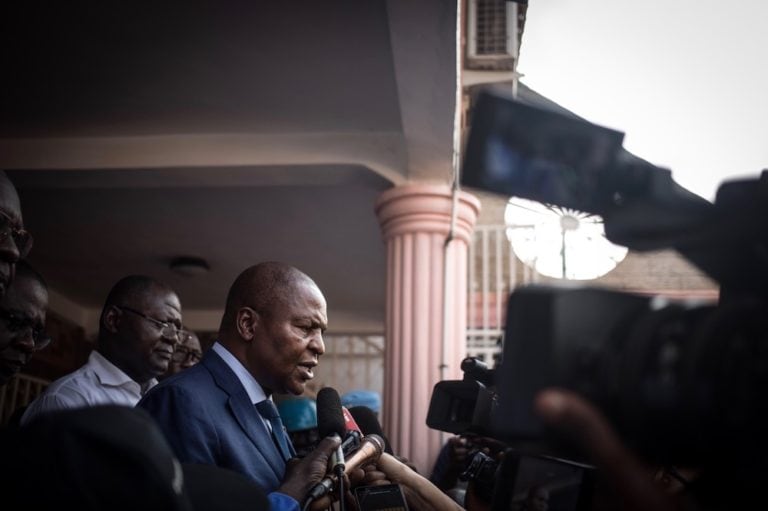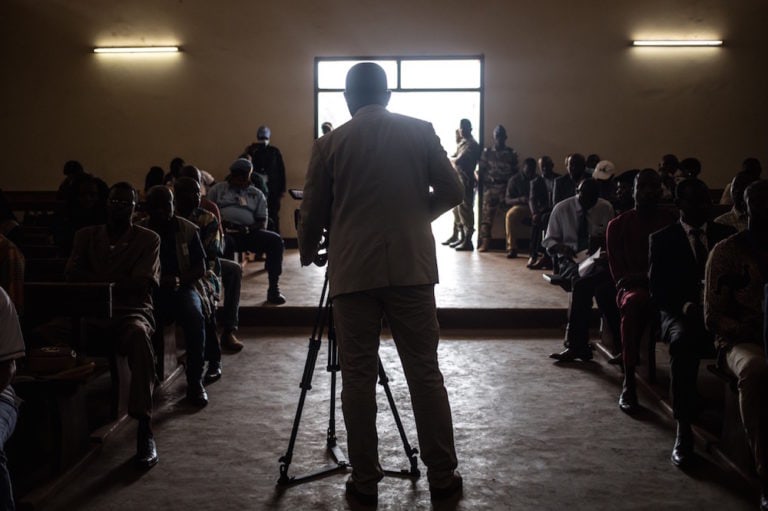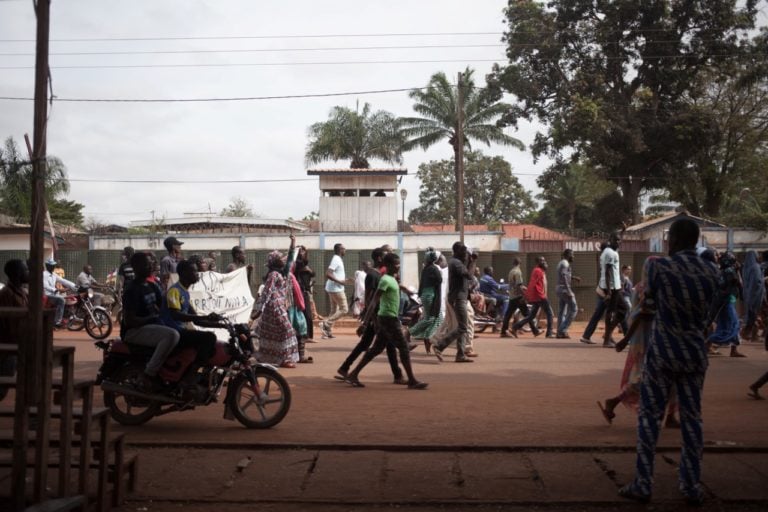Reporters Without Borders strongly condemns a recent increase in threats and violence against journalists, including threats by government officials in the Central African Republic.
Reporters Without Borders strongly condemns a recent increase in threats and violence against journalists, including threats by government officials.
“The intimidation of journalists and ransacking of media after the Seleka coalition seized power by force in March already dealt a severe blow to freedom of information, but a whole new level has been reached in the past few days,” Reporters Without Borders said.
“There has been a major escalation in harassment, threats and intimidation against journalists with privately-owned media, which is being carried out or encouraged by the authorities. We call on the government in Bangui to put a stop to this at once.”
Geoffroy Dotte, managing editor of the weekly Dernières Minutes, was kidnapped in Miskine on 3 August after being seen with a copy of a press release by supporters of former government minister Mohamed Moussa Dhaffane, who has been on hunger strike since 11 July.
Dotte, a member of the Group of Central African Privately-Owned Press Publishers and head of the Central African Journalists Union’s print media section, was handed over to Seleka and was then taken blindfolded to an unknown location where he was interrogated for two hours, despite having shown his press card.
He was finally released in the evening after being ordered to say nothing about what had happened to him.
During a news conference at Bangui’s Hotel Ledger on 27 July, the president’s media adviser publicly insulted journalists with the privately-owned media, describing them as “tramps.”
Davy Kpenouwen, the managing editor of the daily Le Pays, was summoned by the prosecutor-general on 2 August and was threatened with arrest. Le Pays seems to have become a government target in connection with its coverage of the so-called “Badica affair,” although no libel action has been brought against it.
Telephone threats were received by reporters and publishers who took part in Radio Ndeke Luka’s “Press Club” programme on 2 August.
In early June, the minister responsible for the news media, Christophe Gazam Betty, turned up uninvited at the headquarters of the daily Le Confident in the company of armed men, who ransacked its files and threatened its journalists.
Transitional President Michel Djotodia’s meetings with journalists with the privately-owned media on 3 May and 27 July were positive as far as they went, but fell far short of what is clearly needed in the light of recent developments.
Reporters Without Borders condemned the behaviour of members of the Seleka rebel coalition, who robbed or ransacked several news media after toppling the government and entering the capital on 24 March.
The Central African Republic is ranked 65th out of 178 countries in the 2013 Reporters Without Borders press freedom index.


